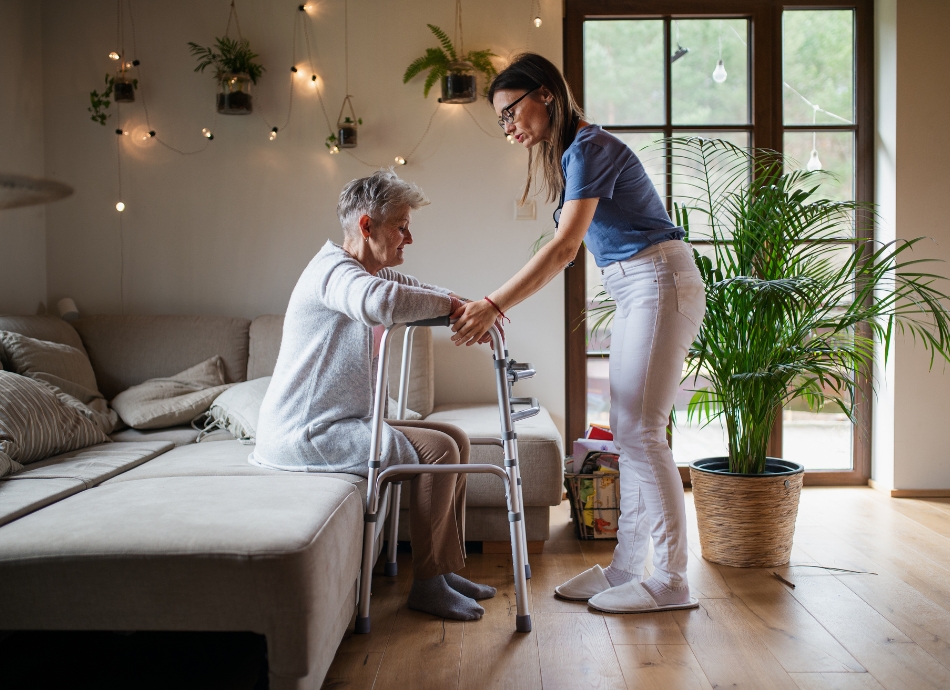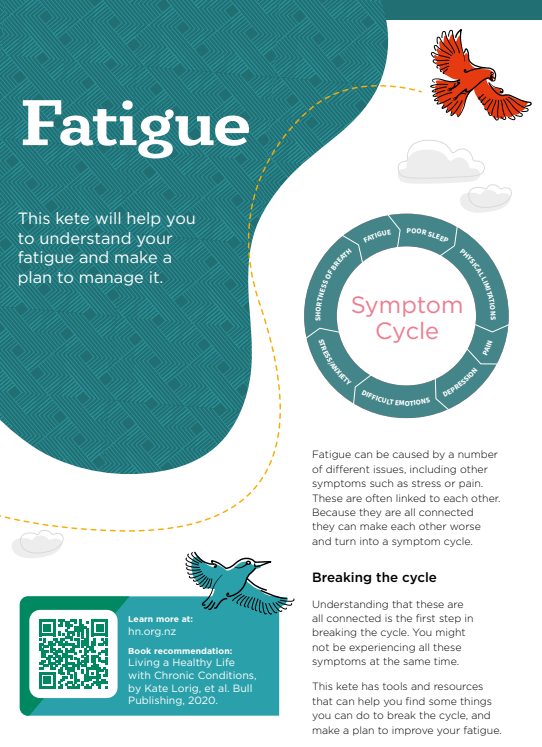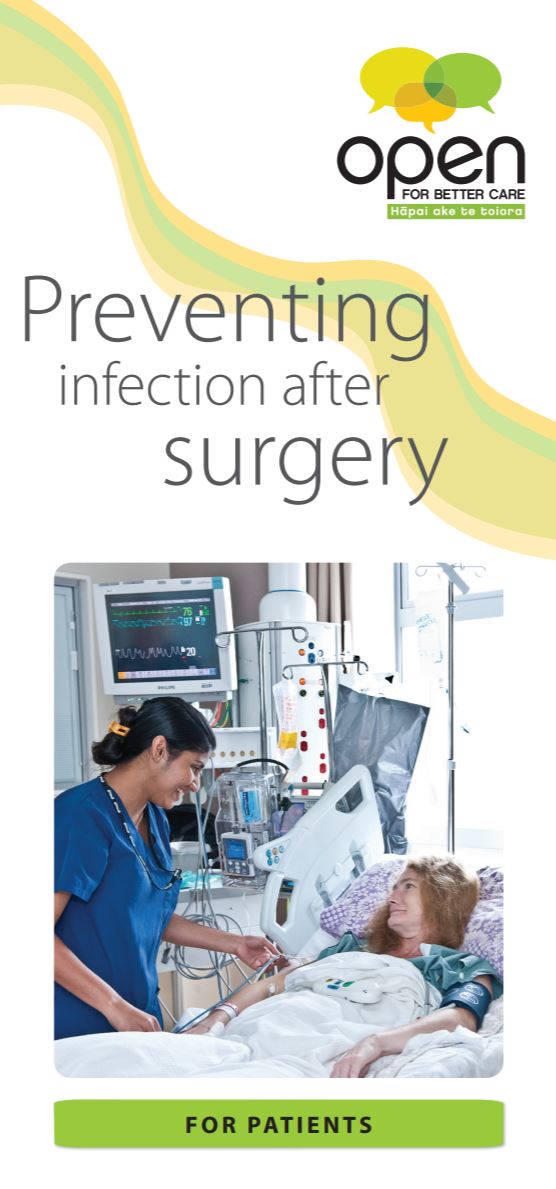You can now add Healthify as a preferred source on Google. Click here to see us when you search Google.
Surgery and recovering well
Key points about recovering well after surgery
- Whether it’s a small operation or for something major, having surgery means you’ll need to take time afterward to rest and recover.
- Every surgery is different and the time it takes to get back into regular daily life depends on many factors.
- Here are some key ways you can help yourself feel better faster and avoid post-operative complications after your surgery.

1. Ask questions
Make sure you get answers to all your questions about your surgery and follow-up care. Ask more than once if you don’t understand. Ask your healthcare team about any changes you need to make to your regular medicines following surgery. Ask how long it's likely to take for you to recover and what support you might need.
Ask questions about managing your wound at home:
- Will a district nurse visit to change the dressing or do you have to see your healthcare provider?
- If you have stitches – will they need to be removed or are they absorbable?
- Who do you contact if you think it’s infected? Learn more about the signs of infection(external link).
2. Follow instructions
Follow the instructions from the surgeon or other health professionals involved in your care. This includes when you should restart your regular medicines if you take any. Write the instructions down if you need to or ask for them in writing. Having a support person with you to listen along with you can be helpful. You should be given a discharge summary which outlines what's happened and what you should know and do over the coming weeks.
Take pain relief as prescribed. Ask about things you can do to manage any pain you may have following surgery.

Image credit: Depositphotos
3. Have a leaving checklist
Being discharged from hospital after surgery can be a stressful process. Having a checklist in your mind or written down can help you make sure nothing is forgotten. Key things to have on your ‘leaving checklist’ could include the following reminders.
- Pack all your belongings including any device chargers next to your bed.
- Collect all your medicines, walking aids and other health aids.
- Make sure you have your discharge summary or letter (a copy will also be sent to your healthcare provider).
- Make sure you have your prescription for pain relief and other medicines you have to keep taking after surgery.
- Make sure any ACC forms or medical certificates have been filled in by the surgical team.
- Have you asked all your questions?
4. Seek advice
Talk to your healthcare provider if you’re still in pain after taking your pain medicine or if your pain hasn’t improved after a few days. Also contact them for advice if you have any new symptoms following surgery (eg, fever, swelling, poor appetite, nausea or vomiting), if you're unable to pass wee (urine) or if your wound looks like it might be infected.
5. Attend follow-up appointments
Make sure you attend all follow-up appointments, such as hospital clinic appointments, healthcare provider follow-up or physiotherapy sessions. Once you start to feel better it can be tempting to think you don’t need any more follow-up care but listen to the advice from your healthcare team.
6. Pace yourself
It can be tempting to rush back to work or school, but your healthcare provider may need to give you the 'all clear' before you get back to some activities. Ease yourself back into exercise. Depending on the type of surgery you've had, your activity levels will vary. But, it's important to keep active as you can in a safe way following surgery. Activity will help your blood flow, your wounds heal and your muscle strength build up. You’ll be given advice about any activities you should avoid and those that you need to take extra care with. Start exercising slowly, using gentle movements and build up gradually.
7. Look after yourself
You can expect to be tired when you get home – especially if you have had major surgery or a general anaesthetic. Get enough rest and be kind to yourself. Healing and recovery takes time.
- Get up and about – this may be simply walking a bit each day. Unless you’re told otherwise, getting out of bed each day helps in your recovery and decreases your risk of developing a deep vein thrombosis (DVT).
- Eat a balanced diet – good nutrition helps with wound healing and recovery.
- Try not to get back into old habits – if you gave up smoking before surgery, don’t start again!
- Ask for help if you need it – this may be for practical help, such as housework or driving, or emotional support while you’re recovering.
- Watch your mood – it's very common to feel a bit down or depressed following surgery. You may feel sad or irritable or have problems sleeping or eating. Tell your friends, family and healthcare team how you're feeling and ask for support if you need it.
Te Kete Fatigue [PDF, 632 KB] Healthify He Puna Waiora, NZ, 2022
Preventing infection after surgery(external link) HQSC and ACC, NZ
Apps
Self-management and healthy living apps
Pain management apps
References
- General surgical risks(external link) Health New Zealand | Te Whatu Ora, NZ
- Pain after surgery Healthify He Puna Waiora, NZ
- Wound infections(external link) DermNet NZ, 2005
- Getting back to normal(external link) NHS, UK, 2021
- Recovering from surgery(external link) Health New Zealand | Te Whatu Ora, NZ, 2025
- Leaving hospital(external link) Health New Zealand | Te Whatu Ora, NZ, 2025
- Depression after surgery(external link) Health, US, 2024
Brochures

Healthify He Puna Waiora, NZ, 2022

HQSC and ACC, NZ
Credits: Healthify editorial team. Healthify is brought to you by Health Navigator Charitable Trust.
Last reviewed:





